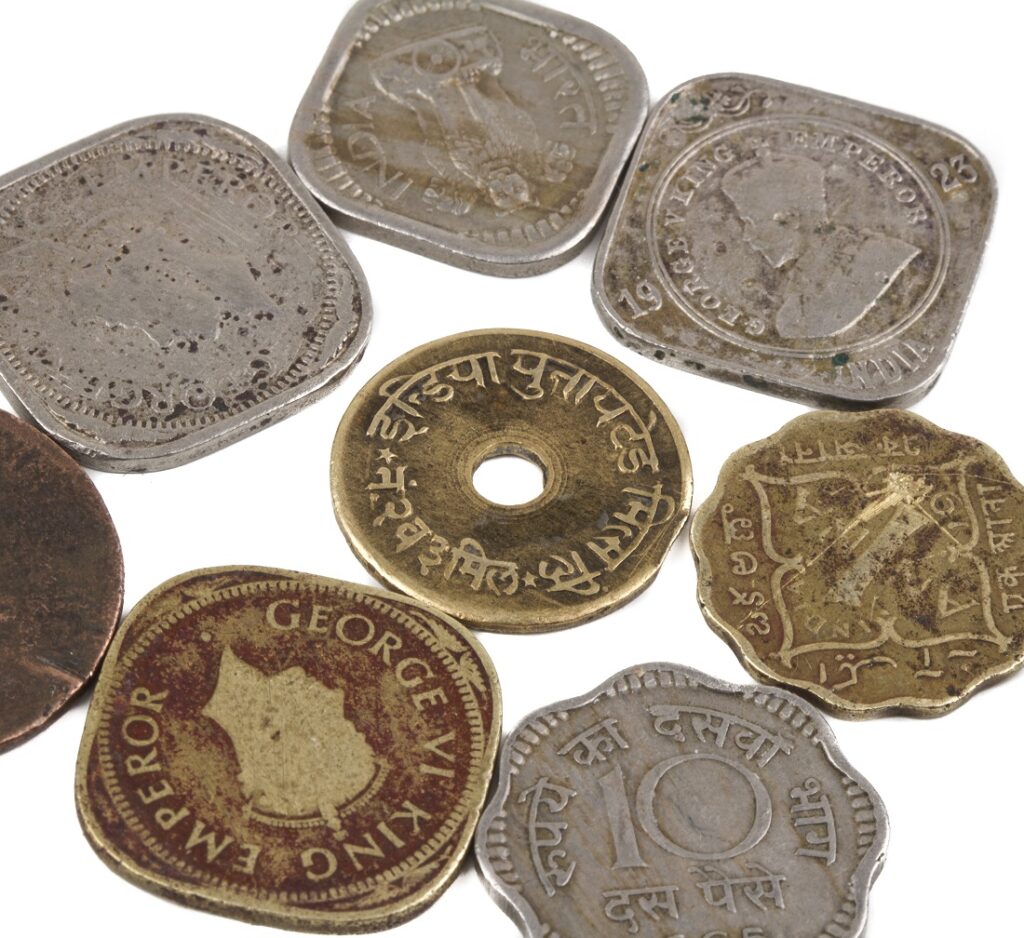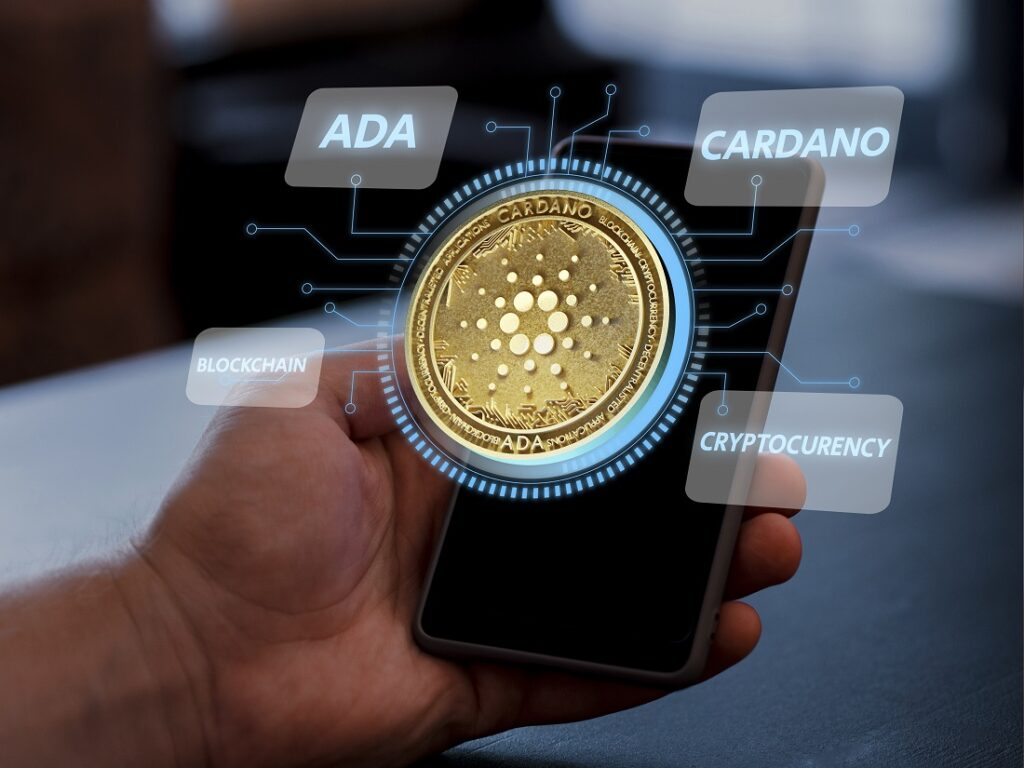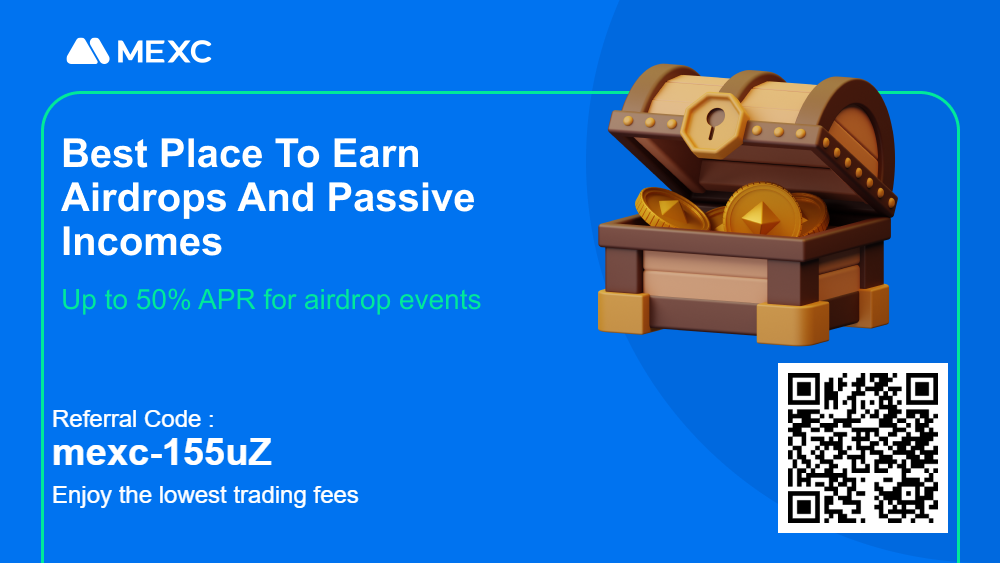In the vast cosmos of cryptocurrency, understanding the token meaning is pivotal. Tokens play a significant role in the crypto world, and this article aims to demystify their concept, history, types, and much more. Let’s embark on this enlightening journey!
Table of Contents
What is a Token?
In the world of cryptocurrency, a token is a type of digital asset that is built on an existing blockchain. Unlike a cryptocurrency, which has its own separate blockchain, tokens are created on blockchains that support smart contract technology, such as Ethereum, Binance Smart Chain, or Polkadot.
Tokens represent a wide range of digital assets and can have various functions. Here are a few examples:
- Utility Tokens: These tokens provide users with access to a product or service. For instance, Filecoin is a utility token that allows users to access and use a decentralized cloud storage platform.
- Security Tokens: These tokens represent an investment contract into an underlying investment asset, such as stocks, bonds, funds, and real estate investment trusts (REIT). They are subject to federal laws that govern securities, providing investors with certain rights.
- Non-Fungible Tokens (NFTs): These are unique tokens that represent ownership of a unique item or piece of content. Unlike cryptocurrencies such as Bitcoin or Ethereum, which are fungible and can be exchanged on a one-for-one basis, NFTs have unique values and cannot be exchanged on a like-for-like basis.
- Governance Tokens: These tokens allow holders to vote on decisions that affect the platform, such as changes to protocols or fee structures. An example is the Uniswap token (UNI), which allows holders to vote on changes to the Uniswap platform.
Tokens are created through a process known as a token sale or Initial Coin Offering (ICO) or Initial Exchange Offerings (IEO), where the creators of the project sell the tokens to investors to raise capital for their project. Once purchased, tokens can be traded on various cryptocurrency exchanges.
The History of Tokens

The history of tokens in the context of cryptocurrency is relatively short, but it has been marked by rapid development and innovation. The concept of tokens emerged with the advent of blockchain technology, the decentralized, distributed ledger system that underpins all cryptocurrencies.
The first blockchain, Bitcoin, was launched in 2009, but it did not support tokens. Bitcoin’s blockchain was designed for one specific purpose: to track the movement of the Bitcoin currency. However, the potential for a blockchain to track other types of assets soon became apparent.
This potential was realized with the launch of Ethereum in 2015. Ethereum introduced the concept of smart contracts, self-executing contracts with the terms of the agreement directly written into code. This innovation allowed for the creation of decentralized applications (DApps) on the Ethereum platform, and with DApps came the first tokens.
These tokens were created using Ethereum’s ERC-20 standard, which provided a blueprint for developers to create their own tokens on the Ethereum blockchain. These tokens could represent any asset or utility the developer desired, from other currencies to digital services.
The first token sale, or Initial Coin Offering (ICO), also occurred in 2015. This was a new way for crypto projects to raise funds by selling their tokens to the public. The concept quickly caught on, and hundreds of ICOs were launched in the following years.
In 2017, the crypto world saw the emergence of a new type of token: the non-fungible token (NFT). Unlike regular tokens, which are interchangeable, NFTs are unique. Each NFT represents a specific, unique asset, and this has led to their use in representing ownership of digital art, among other things.
More recently, the concept of decentralized finance (DeFi) has led to the creation of a new type of token: the governance token. These tokens give holders the right to vote on decisions affecting the platform, such as changes to protocols or fee structures.
Today, tokens are a fundamental part of the cryptocurrency landscape, used in a wide variety of applications and representing a vast range of values and utilities. As the technology and concepts behind blockchain and cryptocurrency continue to evolve, it’s likely that we’ll see even more innovation in the world of tokens.
Different Types of Tokens
Tokens come in various shapes and sizes, metaphorically speaking. Here’s a simple chart to illustrate the different types of tokens:
| Token Type | Description | Examples |
|---|---|---|
| Utility Tokens | These tokens provide users with access to a product or service. They are not created as investments, but as a means of interacting with a platform or service. | Filecoin (FIL), Binance Coin (BNB), Chainlink (LINK) |
| Security Tokens | These tokens represent an underlying investment asset, such as stocks, bonds, funds, and real estate investment trusts (REIT). They are subject to federal laws that govern securities, providing investors with certain rights. | tZERO (TZROP), Blockchain Capital (BCAP), Nexo (NEXO) |
| Non-Fungible Tokens (NFTs) | These are unique tokens that represent ownership of a unique item or piece of content. Unlike other tokens, NFTs have unique values and cannot be exchanged on a like-for-like basis. | CryptoKitties, NBA Top Shot, Beeple’s artwork |
| Governance Tokens | These tokens allow holders to vote on decisions that affect the platform, such as changes to protocols or fee structures. They give token holders a say in the direction of the project. | Uniswap (UNI), Compound (COMP), Aave (AAVE) |
| Stablecoins | These are tokens that are pegged to a stable asset, like a currency (most often the US dollar) or a commodity like gold. They are designed to minimize the volatility of the price of the stablecoin. | Tether (USDT), USD Coin (USDC), DAI |
| DeFi Tokens | These tokens are associated with decentralized finance (DeFi) platforms. They can represent a wide range of functions and values within the DeFi ecosystem. | Yearn.finance (YFI), SushiSwap (SUSHI), Maker (MKR) |
Each type of token has its own unique features and uses within the crypto ecosystem. Understanding these differences is crucial for anyone looking to participate in the world of cryptocurrency.
How Do Tokens Work?

Tokens, in the context of cryptocurrency, are digital assets that exist on a blockchain. They are created using smart contracts, which are self-executing contracts with the terms of the agreement directly written into code. The code and the agreements contained therein exist across a distributed, decentralized blockchain network.
Here’s a step-by-step breakdown of how tokens work:
- Token Creation: Tokens are created on a blockchain that supports smart contract technology. The most common platform for token creation is Ethereum, which provides standards like ERC-20 and ERC-721 for creating fungible and non-fungible tokens, respectively. However, other blockchains like Binance Smart Chain and Polkadot also support token creation.
- Smart Contracts: The rules governing a token’s operation are programmed into a smart contract. This includes the total supply of tokens, how they can be transferred, and any additional rules or functions the token has. Once the smart contract is deployed on the blockchain, these rules cannot be changed.
- Token Distribution: Tokens are often distributed through a process known as an Initial Coin Offering (ICO) or Initial Exchange Offering (IEO), where they are sold to investors. However, tokens can also be distributed through other methods such as airdrops, where tokens are given out for free to holders of a certain cryptocurrency, or mining, where tokens are rewarded for contributing to the network.
- Token Transactions: Tokens can be transferred between addresses on the blockchain. These transactions are recorded on the blockchain and are visible to anyone using the network. This ensures transparency and security, as the history of a token’s transactions cannot be altered or deleted.
- Token Use: The use of a token depends on its type and the rules programmed into its smart contract. Utility tokens can be used to access a service, security tokens represent an underlying asset, and governance tokens allow holders to vote on decisions affecting the platform.
- Token Trading: Tokens can be traded on various cryptocurrency exchanges. The price of a token is determined by supply and demand dynamics in the market.
In summary, tokens work by utilizing the power of blockchain technology and smart contracts to create digital assets with a wide range of uses and values. They are an integral part of the cryptocurrency ecosystem and have enabled the development of complex decentralized applications and financial instruments.
The Role of Tokens in Cryptocurrency
Tokens play a pivotal role in the cryptocurrency ecosystem. They serve as the backbone of decentralized applications (DApps), represent a wide range of digital assets, and enable the creation of new economic systems. Here are some of the key roles tokens play in the world of cryptocurrency:
- Medium of Exchange: Tokens can be used as a medium of exchange within a particular ecosystem. For example, in a decentralized file storage system, tokens can be used to buy and sell storage space.
- Access to Services: Utility tokens provide access to a product or service. For instance, a token might give holders the right to use a certain amount of cloud storage space, or to vote on the development roadmap of a project.
- Representation of Assets: Tokens can represent real-world or digital assets. This includes everything from real estate and stocks (security tokens) to unique digital content like art or music (non-fungible tokens).
- Governance: Governance tokens allow token holders to vote on decisions that affect the platform. This could include changes to protocols, fee structures, or even the election of decision-making bodies.
- Fundraising: Tokens are often used to raise funds for a new project or startup in the crypto space. In an Initial Coin Offering (ICO) or Initial Exchange Offering (IEO), tokens are sold to investors to raise capital.
- Incentivization: Tokens can be used to incentivize certain behaviors within a network. For example, in a proof-of-stake (PoS) blockchain, tokens are staked (locked up) to secure the network, and those who stake their tokens are rewarded with additional tokens.
- Interoperability: Some tokens enable interoperability between different blockchains, allowing for the transfer and use of information or assets from one blockchain network to another.
In essence, tokens are the fuel that powers the complex machinery of the cryptocurrency ecosystem. They provide the means for creating, transferring, and storing value in a decentralized and secure manner, paving the way for a new era of digital innovation.
How to Buy and Trade Tokens
Buying and trading tokens in the cryptocurrency market involves several steps. Here’s a detailed guide:
Step 1: Choose a Cryptocurrency Exchange
The first step is to choose a cryptocurrency exchange. This is a platform where you can buy, sell, and trade various cryptocurrencies and tokens. Some popular exchanges include Mexc, Coinex, Gate.io. When choosing an exchange, consider factors like security measures, transaction fees, the range of available tokens, and the user interface.
Step 2: Create an Account
Once you’ve chosen an exchange, you’ll need to create an account. This usually involves providing some personal information and verifying your identity for security purposes. This process is known as Know Your Customer (KYC) procedures.
Step 3: Deposit Funds
After your account is set up, you’ll need to deposit funds into it. Most exchanges allow you to deposit funds in the form of a traditional currency (like USD or EUR) or a cryptocurrency (like Bitcoin or Ethereum). The methods for depositing funds can vary from one exchange to another, but they usually include bank transfers, credit/debit card payments, or transfers of cryptocurrency from another wallet.
Step 4: Buy Tokens
With funds in your account, you can now buy tokens. Navigate to the market for the token you want to buy (for example, the BTC/BNB market if you want to buy BNB with Bitcoin). Enter the amount you want to buy and execute the transaction. Some exchanges offer different types of orders, such as market orders (buy at the current market price) and limit orders (buy at a specific price or better).
Step 5: Store Your Tokens Safely
After buying tokens, it’s important to store them safely. While you can keep them on the exchange, it’s generally safer to transfer them to a personal wallet that you control. There are various types of wallets, including online wallets, mobile wallets, desktop wallets, and hardware wallets.
Step 6: Trading Tokens
Trading tokens involves exchanging one type of token for another. The process is similar to buying tokens. On the exchange, navigate to the market for the pair you want to trade (for example, the BNB/USDT market if you want to trade Binance Coin for Tether). Enter the amount you want to trade and execute the transaction.
Remember, buying and trading tokens involves risk, and you should only invest money that you can afford to lose. Always do your own research and consider seeking advice from a financial advisor.
Risks and Rewards of Investing in Tokens
Investing in tokens, like any investment, comes with its own set of risks and rewards. Understanding these can help you make informed decisions.
Rewards of Investing in Tokens
- High Potential Returns: One of the biggest attractions of investing in tokens is the potential for high returns. Some tokens have seen exponential growth in a short period, leading to significant profits for early investors.
- Access to Innovative Projects: Tokens often represent innovative blockchain projects. By investing in tokens, you can gain exposure to these projects and potentially benefit from their success.
- Liquidity: Tokens can be bought and sold on cryptocurrency exchanges at any time, providing high liquidity compared to some traditional investments.
- Diversification: Investing in tokens can help diversify an investment portfolio. Cryptocurrencies have shown low correlation to traditional asset classes, which can be beneficial in portfolio management.
Risks of Investing in Tokens
- Market Volatility: The value of tokens can be extremely volatile. Prices can increase rapidly but can also drop quickly. This volatility can lead to significant losses.
- Regulatory Risk: The regulatory environment for tokens is still evolving. Changes in regulations or enforcement actions can impact the value of tokens and the ability to buy or sell them.
- Project Failure: Many token projects are in the early stages of development and may not succeed. If a project fails, the associated tokens may lose all their value.
- Security Risks: Tokens are often stored in digital wallets or on exchanges, both of which can be vulnerable to hacking. If a wallet or exchange is compromised, tokens can be stolen.
- Lack of Investor Protections: Unlike traditional securities, tokens typically do not provide ownership rights in a company or project. If a project fails or there is fraud, investors may have little recourse to recover their investment.
While investing in tokens can offer high potential rewards, it also comes with significant risks. It’s important to thoroughly research any token investment and consider seeking advice from a financial advisor or a professional familiar with token investments.
Future of Tokens
The future of tokens in the cryptocurrency world is promising and is expected to bring about significant changes in various sectors. Here’s a look at some potential developments:
- Greater Adoption and Integration: As more people become familiar with blockchain technology and cryptocurrencies, we can expect to see greater adoption of tokens. This could lead to more businesses accepting tokens as a form of payment, and more financial institutions offering services related to tokens.
- Regulation and Standardization: As the token economy grows, so too will the need for regulation and standardization. This could lead to more secure and reliable token transactions, and could also help to prevent fraud and scams.
- Innovation in Token Use Cases: The flexibility of tokens means that they can be used in a wide variety of applications. We can expect to see continued innovation in this area, with tokens being used in new and exciting ways.
- Growth of DeFi and NFTs: Decentralized Finance (DeFi) and Non-Fungible Tokens (NFTs) are two areas where tokens have seen significant growth recently. These sectors are likely to continue to develop and expand, leading to new opportunities for token investors.
- Cross-Chain Interoperability: As the number of different blockchains grows, there is increasing demand for ways to move tokens between different blockchains. Future developments in cross-chain interoperability could make this process more efficient and could open up new possibilities for token use and investment.
- Environmental Considerations: The environmental impact of cryptocurrencies and tokens is a growing concern. Future developments in token technology may focus on creating more energy-efficient methods of token creation and transaction processing.
While it’s impossible to predict the future with certainty, it’s clear that tokens have the potential to play a significant role in the future of finance, technology, and society as a whole. As with any emerging technology, there will be challenges and risks, but also many opportunities for those who are prepared.
Conclusion
In conclusion, understanding the meaning and function of tokens is a fundamental aspect of navigating the complex world of cryptocurrency. From their inception on the blockchain to their various types and uses, tokens have revolutionized the way we view digital assets and transactions.
Tokens are not just digital assets; they represent a wide array of utilities in the crypto ecosystem. They can be a medium of exchange, represent real-world or digital assets, provide access to services, or even serve as a governance tool. The versatility of tokens has led to their integration in various sectors, from finance and real estate to art and entertainment.
However, like any investment, buying and trading tokens come with their own set of risks and rewards. While they offer high potential returns and provide access to innovative projects, they are also subject to market volatility, regulatory risks, and security threats. Therefore, thorough research and understanding are crucial before diving into token investment.
Looking ahead, the future of tokens appears promising. With greater adoption, regulatory advancements, and continuous innovation, tokens are poised to become an even more integral part of the cryptocurrency landscape. As we continue to explore and harness the potential of blockchain technology, the role and impact of tokens are likely to expand even further.
In essence, the journey into understanding tokens is a journey into the heart of the cryptocurrency world. It’s a complex, dynamic, and fascinating journey, and the more we understand, the better equipped we are to navigate and benefit from the opportunities it presents.
FAQs
What is a token?
A token in the context of cryptocurrency is a type of digital asset that is built on an existing blockchain. Tokens can represent a wide range of assets or utilities, from commodities to access to services.
What does ‘use token’ mean?
Using a token typically refers to utilizing it for its intended purpose within a specific blockchain ecosystem. This could mean spending it, earning it, or using it to interact with a service or application.
How to create a crypto token?
Creating a crypto token involves writing and deploying a smart contract on a blockchain that supports this feature, like Ethereum. The smart contract contains the rules governing the token’s operation, including its total supply and how it can be transferred.
What makes a token a security?
A token is considered a security if it passes the Howey Test, a test created by the U.S. Supreme Court to determine whether certain transactions qualify as investment contracts. If a token is invested in a common enterprise with the expectation of profit primarily from the efforts of others, it is considered a security token.
What is the difference between a coin and a token?
The main difference between a coin and a token lies in their structure and purpose. Coins like Bitcoin or Ethereum have their own separate blockchains and are primarily used as a currency or store of value. Tokens, on the other hand, are built on existing blockchains and can represent a wide range of assets or utilities.


